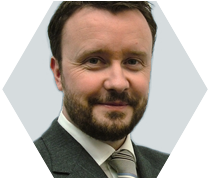


Healthcare Forum, Malmo Sweden 2018
Forum key takeaways:
There needs to be an extensive re-think in the way that we structure the planning of meetings. As meeting professionals, we need to embrace complexity in planning and delivery and create new processes to communicate meeting objectives, integrating each stakeholder into a new style project team focused on addressing the needs of meeting outcomes and process efficiency

Healthcare Meetings Forum Radisson Hotel & Conference Centre London 2014
Forum key takeaways:
Key Takeaway Points:
- Regulatory and Budgetary Pressures: New transparency requirements and budget constraints are reshaping how pharmaceutical companies engage with healthcare professionals.
- Patient-Centric Approach: The rise of the informed patient and a focus on patient outcomes are driving changes in medical meetings.
- Digital Dissemination: Digital channels are increasingly important for sharing meeting content and engaging healthcare professionals.
- Compliance Challenges: Companies face significant challenges in meeting compliance obligations, necessitating innovative approaches to fulfill these requirements.
- Meeting Formats: A shift towards smaller, more interactive and technology-enabled meetings is evident, aligning with the needs for education over promotion.
- Multi-Channel Communication: Integrating meetings into a broader multi-channel strategy is essential for effective communication with both healthcare professionals and patients.
- Collaboration and Dialogue: Ongoing dialogue among stakeholders is crucial for addressing compliance, enhancing scientific communication, and improving patient outcomes.
- Future Planning: The forum highlighted the need for continuous evolution in meeting formats and strategies to adapt to changing regulatory and market dynamics.
These points collectively underscore the ongoing transformation in the healthcare meeting landscape, driven by regulatory changes, the need for greater transparency, and a focus on improving patient outcomes through more effective communication and engagement strategies.
Please note the view in this report reflect the views and content available at the time. In some cases the conclusions have been realised or changed in the time since their creation.

Healthcare Meetings Forum Suntec Conference Centre Singapore 2014
Forum key takeaways:
The 2014 Healthcare Meetings Forum Asia focused on the evolving nature of medical meetings in Asia, highlighting the challenges posed by regulatory compliance, shifting funding models, and the need for enhanced patient care. Emphasis was placed on collaborative dialogue among stakeholders to foster ethical and effective scientific communication.
- Regulatory Compliance: Adapting Western compliance frameworks to Asian contexts is challenging due to cultural and systemic differences.
- Funding Models: Declining corporate sponsorships necessitate creative approaches to maintain education and best practices.
- Patient-Centric Focus: Ensuring patient outcomes are prioritized amidst regulatory and funding changes.
- Stakeholder Collaboration: Dialogue among industry, medical societies, and regulators is crucial for addressing evolving meeting formats and compliance.
- Educational Content: Transition from promotional to educational content, with a preference for interactive, tech-enabled, and smaller, specialized meetings.
Please note the view in this report reflect the views and content available at the time. In some cases the conclusions have been realised or changed in the time since their creation.

Healthcare Meetings Forum, QEII Centre London 2013
- Ongoing Dialogue: Continuous conversation among stakeholders is essential beyond the forum.
- Quality over Quantity: Focus on high-quality, targeted events rather than the number of events and attendees.
- Positive Compliance: Compliance drives productive directions in healthcare meetings.
- Evolving Promotion: Pharma needs to measure returns in terms of engagement with prescribing influencers, not just commercial impact.
- Scientific Education: A common focus on scientific education benefits both medical and commercial interests.
- Event Roles: Further exploration needed on the roles of large congresses, mid-size, and smaller targeted events.
- Compliance Management: Corporate sponsors must address all compliance aspects, not just logistics.
- Sponsorship Value: Communicating the value of corporate sponsorship to senior management is critical.
- Multi-Channel Balance: The right balance of multi-channel and social media support for healthcare meetings needs to be defined.
- Compliance Responsibility: Determining where compliance responsibility lies—pharma, agencies, venues, or healthcare providers—requires further discussion.




Recent Comments